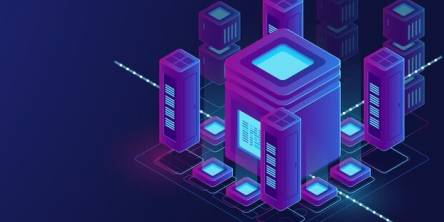Why Companies Should Contemplate Transitioning from Legacy Systems

We live in an immensely technologically advanced age. This is why it is no surprise that a rapidly growing number of companies are increasingly deliberating on the big question: is it time to migrate their legacy systems? While we cannot say why an individual company would need to migrate its systems, we do know why most companies want to migrate its legacy systems.
For starters, moving to a modern system can significantly improve productivity and customer service because such systems are designed to be fast and efficient. Then, there is the fact that legacy systems are not always conducive to scalability to accommodate the growing needs of the business. Thankfully, modern systems can help with that as well, allowing the system to adapt to the changing demands of the company and enabling growth without necessitating any major disruptions to the systems.
Did we tell you that migrating to a modern system can help companies significantly reduce their IT costs in several ways? For starters, a company may save money on hardware, software, and maintenance costs with modernized systems. Besides that, modern systems also bring high levels of agility to the table, i.e., compared to legacy systems, modern systems can easily adapt to the changing needs of the business. This, in turn, can give the company a competitive advantage in the market.
Key Considerations To Migrate From A Legacy System:-
Now, if you too want to avoid the risks of legacy application migration, here are some tips to keep in mind:
- Scalability and Performance: Legacy systems may not scale with the growing needs of a business though they can become bottlenecks that limit performance and hinder expansion. Modern systems are designed to scale efficiently, enabling companies to accommodate increased workloads, users, and data without compromising performance.
- Security Concerns: Legacy systems are more vulnerable to security threats. They lack the robust security features of contemporary software and may not receive regular security updates. This exposes the company to data breaches, cyberattacks, and compliance risks. Migrating to more secure systems is a proactive approach to safeguarding sensitive data and maintaining trust with customers.
- Continuous integration and delivery (CI/CD): You must go into the migration process with a direct and unambiguous strategy for implementing CI/CD. This should include the timelines, key performance indicators (KPIs), and goals. But why, you ask? Well, this is because the CI/CD process can help companies alleviate the risks associated with the migration from legacy systems, and it does so by ensuring that changes are made and deployed frequently, albeit in a controlled fashion.
- Test before expanding: This may seem a little redundant, but please do not forget to test every change to the legacy system before you push said changes into production. This is highly recommended because it helps companies identify and fix any probable problems before said problems and issues can disrupt the company’s business operations.
- Address knowledge gaps: We cannot insist enough on how important it is for companies to carefully and strategically invest in your team's training and skill development. This will help ensure that the employees have both the knowledge and the expertise needed for the CI/CD process and, of course, the new technology stack that will be used and implemented.
- Assessment of data: Yet another key point of focus for companies considering their legacy systems should be their data. What we mean to say is that companies must carefully assess their data before the data is migrated to a new system.
Final Words
In conclusion, migrating from a legacy system is not just an option; it's a strategic necessity for companies looking to thrive in a rapidly evolving business environment. Legacy systems pose technology, security, scalability, and innovation challenges. Migrating to modern systems addresses these challenges and ensures cost-efficiency, compliance, and the ability to capitalize on new opportunities.
It's a forward-looking move that positions companies for success in the digital age. What are you waiting for, then? Start looking for trusted vendors to help with your legacy application migration project.
Similar Articles
In the fast-paced world of supply chain management, it is vital to coordinate logistics operations for businesses aiming to meet customer demands, reduce costs, and stay competitive.
The handling of projects may be characterized as a laborious and complex responsibility. From the formation of employment positions through allocating resources for managing work in progress, significant amounts of business hours and resources are used.
Discover the perfect project management software for your business with our guide. Explore key considerations to streamline your projects effectively. Choose wisely
Unless you live under a rock, you know that television and the overall idea of content consumption have changed drastically and beyond anything we would have imagined three to four decades ago. Over-the-top (OTT) apps continually reshape today's future of television
Unless you have been living under a rock, you know that the modern world has come to rely on mobile apps immensely. From simply being able to send texts to people over the internet to wiring money across the globe — mobile apps help us do it all.
Blockchain technology and the concept of a decentralized "Web3" internet have generated tremendous hype and interest in recent years. Beyond cryptocurrencies like Bitcoin, the potential for decentralized applications built on blockchain platforms has been driving innovation.
In today's digital age, a compelling logo is essential for any business or brand looking to establish a strong online presence. Your logo is often the first thing that potential customers see, and it can significantly impact their perception of your brand.
In an era where digital assets and data are the lifeblood of businesses, ensuring robust cloud security has never been more crucial. As a rapidly growing number of companies and other entities in the world embrace cloud computing, it has become vital to focus on the one factor that remains all-important, no matter the technology involved: security.
In today's fast-paced commercial enterprise surroundings, staying aggressive and green is crucial for success. Payroll control is one location where businesses can beautify their efficiency and release prices. Traditional payroll processes are frequently bulky, time-eating, and vulnerable to errors.









